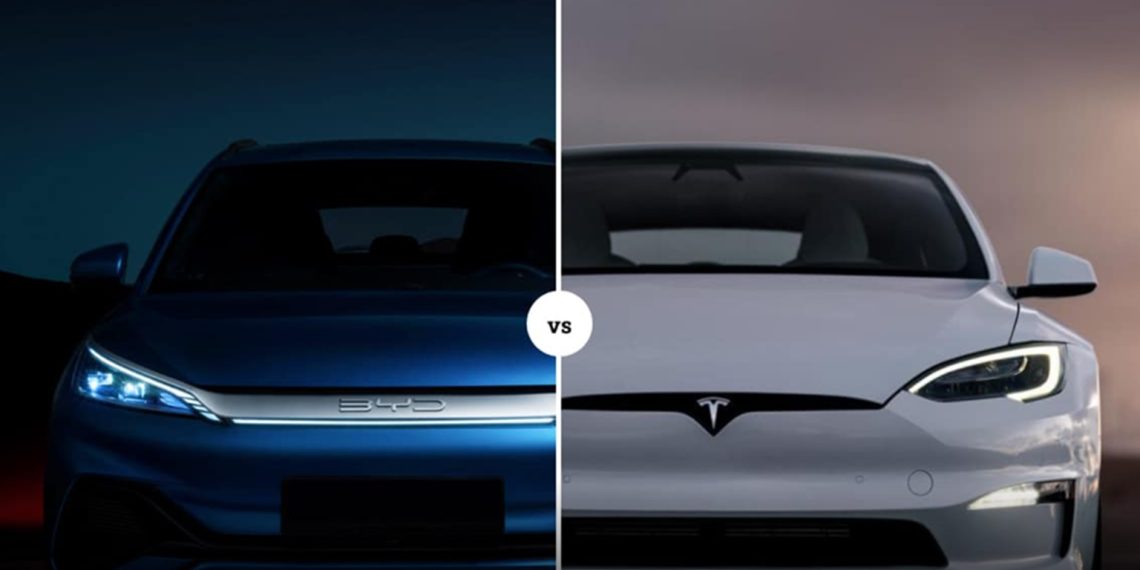News that BYD has overtaken Tesla as the world’s largest seller of electric vehicles (EVs) on a quarterly basis is a significant indication of China’s growing position in the global market for battery-powered cars.
BYD reported selling more than 526,000 EVs in the fourth quarter of 2023, compared with Tesla’s sales of nearly 485,000 for the same period.
Despite the overtaking, Tesla still managed to hit its yearly sales target of 1.81M delivered EV’s in 2023. The company’s global vehicle delivery increased by 38% year-on-year, while production increased by 35% year-on-year to 1.85M vehicles. This marked the first quarter that BYD’s battery-only sales have outpaced Tesla’s.
BYD Auto, the automotive subsidiary of BYD Company, was founded two decades ago to develop and produce passenger cars, buses, trucks, and forklifts for China. More recently, it shifted its manufacturing focus to BEVs and plug-in hybrid EVs, making its final combustion vehicle in March of 2022 while striving to become a globally recognized all-electric brand.
Analysts attribute BYD’s growth to its original business – batteries. They are one of the most expensive parts of an EV and producing them in-house predictably saves BYD significant sums of money, especially considering many of its competitors rely on third-party manufacturers. BYD’s battery business also provided the company with the flexibility to cut prices sharply at the end of 2023, lifting sales, which jumped by 70% in December alone.
Despite this shift, Tesla continues to grow, though at a slower rate. It maintained 17% of the global market YoY but only saw 27% growth. Tesla’s Model Y remains the best-selling battery EV on the planet, and the American automaker was recently able to stumble over the finish line in delivering Cybertrucks to customers.
As BYD accelerates into the fast lane, it’s fresh evidence of just how strong the EV market has become and underscores the increasing competitiveness of Chinese automakers on the international stage.












